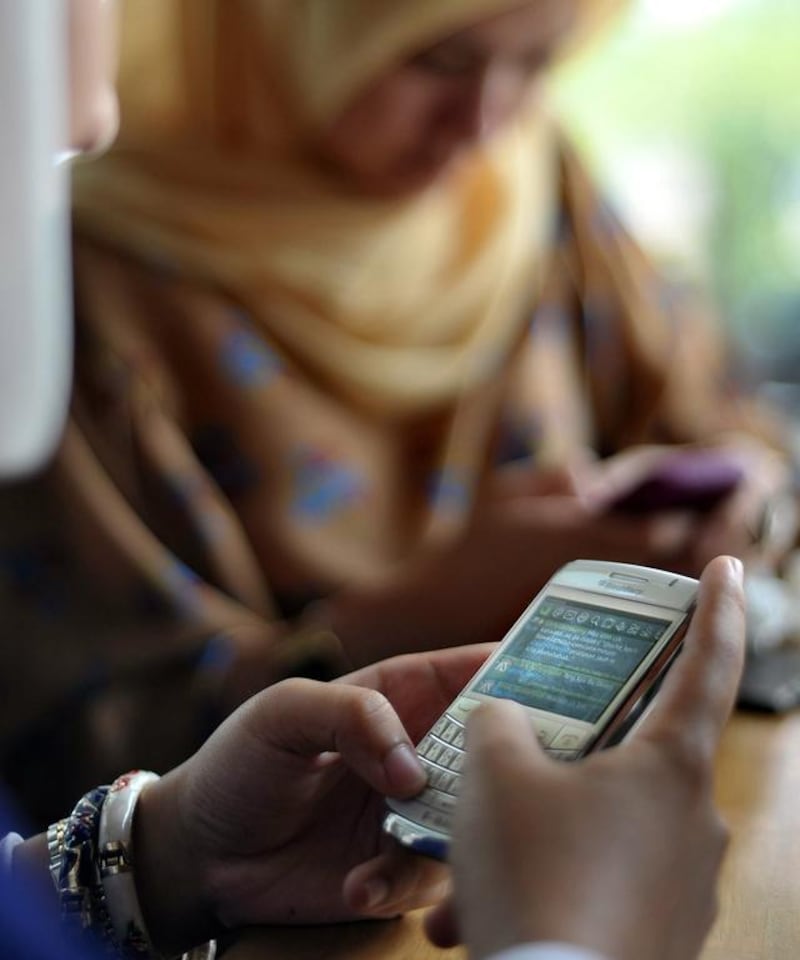What’s so great about social media? This is one of the first questions that I ask my university students and the two most common answers are: “It keeps me connected to my friends and family” and “It allows me to share my life experiences with everyone I care about, all at once.”
Our discussion typically turns into a debate about the pros and cons of using social networks such as Facebook, Instagram, Snapchat and Twitter. Overall, my students agree that social media plays an important and positive role in their lives. They say that deactivating their accounts would make them less happy and less social. But are they right?
Research has identified a number of benefits to using social media. These tools keep us connected to others. This is especially important in a global hub such as the UAE. Social media allows us to see what our family and friends are up to – no matter where they are.
But social media can be isolating too. Some psychology research has found that people who spend a lot of time on social networks are more likely to think that other people are happier than they are. These feelings are affected by the type of information that other people share with us on social media.
We use social media to share information about ourselves with many people at once. This information isn’t always accurate, though. Psychologists refer to this as impression management. Essentially, we carefully select the information that we present to others. For most of us, this involves highlighting our strengths and downplaying our weaknesses.
The problem with impression management is that it sets us up for unfair comparisons. We know our own strengths and weaknesses, but we don’t necessarily see other people’s struggles and limitations. As a result, we end up comparing a (relatively) accurate version of ourselves to the curated personas that we see on social media. A recent article in Current Opinions in Psychology found that our mood and self-esteem can suffer when we compare ourselves to people that we think are better off or happier than we are.
I spend most of my time on social media reading and looking at parenting posts, because I’m a parent and parenting researcher. I’ve noticed that many parents post picture-perfect shots of their children. Many of the UAE’s “mommy bloggers” regularly share their idyllic lives with thousands of followers. Unfortunately, the dishevelled and unhappy moments never make it to their profiles. This can leave many new parents feeling insecure and inadequate about their struggles. These feelings can be very isolating, especially when they think that they are the only ones going through them.
The main solution for this problem is to remind ourselves that what we see on social media is simply what the poster wants us to see. People share their best moments and hide their worst ones. We all have highs, but most importantly, we all struggle at one time or another.
Another solution is for us to support one another through our ups and our downs. Research has consistently shown that a support system is good for physical and psychological health. It can even help us live longer. There are many resources for parents in the UAE.
Don’t hold yourself to the standards you see on social media. Life doesn’t come with a filter. Comparing yourself to someone’s carefully crafted image can leave you feeling insecure and inadequate. It’s time for us to start #keepingitreal for the sake of our self-esteem and happiness.
Dr Sarah Rasmi is an assistant professor of psychology at United Arab Emirates University and author of many articles on parenting
On Twitter: @DrSarahRasmi





